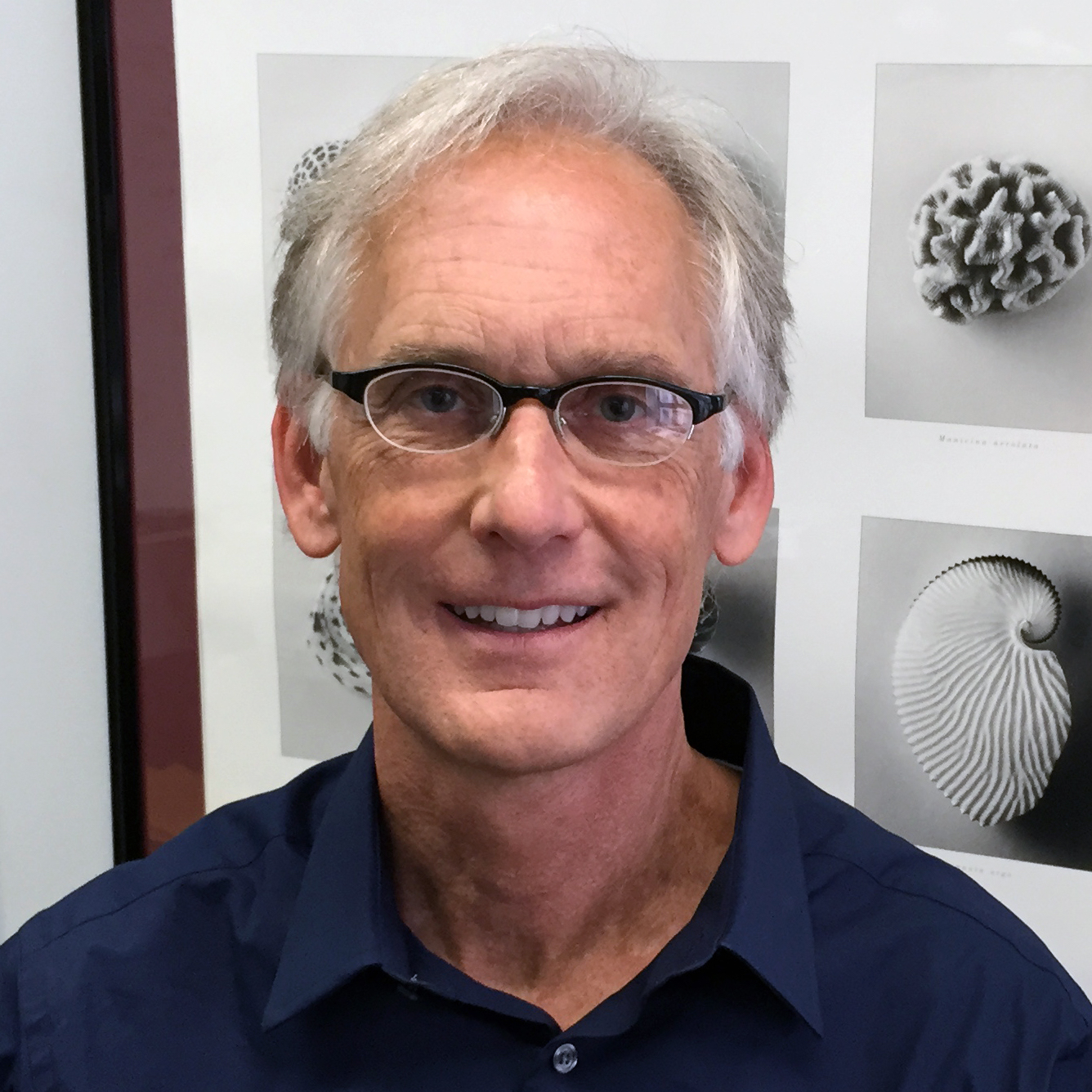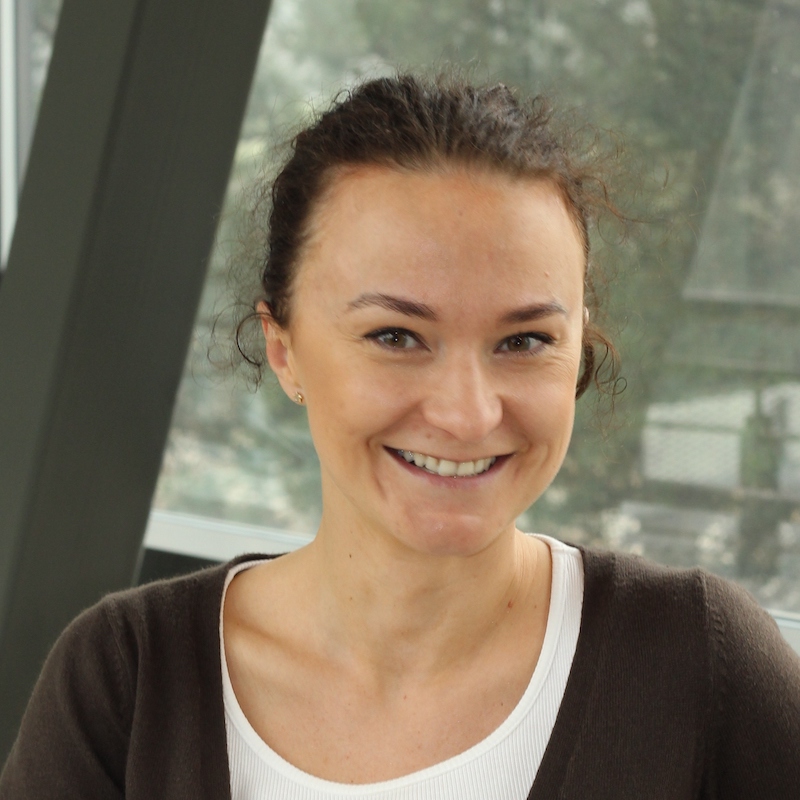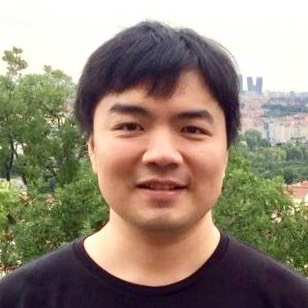CNAST Faculty

Bruce Armitage
Professor and Head, Chemistry
Co-Director, CNAST
Carnegie Mellon University
The Armitage lab is focused on synthesizing peptide nucleic acid (PNA) oligomers for use in (a) regulating gene expression at the DNA or RNA level, (b) assembling new antibiotic drug candidates, (c) manipulating biomolecular condensates and (d) fluorescent labeling of RNA. These projects take advantage of the high affinity of PNA for complementary DNA and RNA (as well as for itself) to invade local secondary structures such as G-quadruplexes and i-motifs. Our work involves collaborations with scientists in CMU’s Department of Biological Sciences, Chemical Engineering and Mechanical Engineering, the University of Pittsburgh’s School of Medicine and Hillman Cancer Center and Duquesne University’s Department of Chemistry.

Richard Border
Assistant Professor, Ray and Stephany Lane Computational Biology Department
Carnegie Mellon University
The Border lab develops scalable methods for understanding the genetic basis of complex disease with an emphasis on separating genetic confounds and other structural artifacts from biologically-relevant genetic signal. We also develop inference algorithms for the statistical analysis of biobank scale data using stochastic and iterative numerical methods that exploit structure in the genome to speed computation and scientific discovery. We are currently focused on methods for modeling non-random mating, global versus specific epistasis, and the genetic basis of psychiatric disorders.

Subha R. Das
Associate Professor, Chemistry
Carnegie Mellon University
The Das lab specializes in chemically modified nucleic acids, nucleic acid-polymer hybrids and targeted therapeutic delivery, particularly with extracellular vesicles, integrating molecular design with automated science approaches. The lab has pioneered nucleic acid-polymer hybrids for therapeutic delivery applications and developed versatile oligonucleotide-based systems for engineering exosomes, significantly enhancing drug delivery capabilities. These interdisciplinary approaches accelerate discoveries with potential applications in medicine and nanobiotechnology.

Alex Deiters
Distinguished Professor, Chemistry
University of Pittsburgh
The Deiters lab has extensive expertise in the chemical synthesis and chemical modification of nucleic acid molecules. The group has developed optical control of oligonucleotides in order to achieve activation and deactivation of antisense, siRNA, miRNA, gRNA, and DNA decoy function with high spatial and temporal precision in cells, tissues, and animals. Installation of electrophilic warheads onto aptamers has recently enabled the specific covalent modification of proteins, an approach that solves several shortcomings of traditional aptamers. The lab has also dabbled in DNA computing, demonstrated that it is functional in human cells and interfaced it with protein and small molecule outputs.

Chris Donnelly
Associate Professor, Neurobiology
University of Pittsburgh
Our laboratory employs induced pluripotent stem cell (iPSC) neurons and glia derived from amyotrophic lateral sclerosis (ALS) and frontotemporal dementia (FTD) patients to study the molecular pathogenesis of neurodegeneration and aging. Specifically, we study the mechanisms that underlie nuclear pore biology and nucleocytoplasmic trafficking dysfunction in ALS/FTD and other TDP-43 proteinopathies. The goals of this work is to to uncover novel mechanisms that lead to selective neurodegeneration and to develop methods of intervention to prevent trafficking-related neural injury.

Charles Ettensohn
Professor, Biological Sciences
Carnegie Mellon University
The Ettensohn lab studies genetic and cellular mechanisms that underlie animal embryogenesis, using sea urchins and other echinoderms as experimental models. A major focus of the lab is to leverage experimental and bioinformatics-based approaches to elucidate the architecture, function, and plasticity of developmental gene regulatory networks.

Jonathan Henninger
Assistant Professor, Biological Sciences
Carnegie Mellon University
The Henninger Lab explores how RNA regulates gene expression at multiple scales in health and disease. We use approaches based in molecular biology, soft-matter physics, and super-resolution imaging to understand how RNA regulates its own production to direct cell fate and how RNA-mediated dysregulation contributes to human disease.

Irene Kaplow
Assistant Professor, Ray and Stephany Lane Computational Biology
Carnegie Mellon University
The Kaplow Lab investigates how tissue- and cell-type-specific transcriptional regulatory elements have changed between species and the influences of these changes on phenotype evolution. We are currently focusing on transcriptional regulation in the liver and its influence on the evolution of metabolic phenotypes, such as carnivory and hibernation.

Brett Kaufman
Professor, Cardiology and Bioengineering
University of Pittsburgh
Dr. Kaufman’s research interest is to understand the contribution of mtDNA metabolism to disease progression. For 20 years he has been uncovering the fundamental processes that underlie mitochondrial respiratory deficiency with a focus on mtDNA stability and copy number control – processes essential for respiratory function and viability.

Anna M. Kietrys
Assistant Professor, Chemistry
Carnegie Mellon University
The Kietrys group applies chemical, biochemical, and bioinformatics tools to translate the RNA structure-function language to understand RNA-mediated cell signaling in neurodegeneration. Despite rapid advancements in transcriptomics and new research techniques, the complexity of the RNA world and its role in cell organization and function remain incompletely understood. Our goal is to explore the dynamics of RNA structure in the context of modified nucleotides and the function of RNA as an information carrier in intra- and extra-cellular signaling during disease progression.We focus on the biological roles of new RNA groups, such as circular RNAs (circRNAs) and ultra-small RNAs (usRNAs), which structural and epitranscriptional profiles remain elusive.

Carl Kingsford
Herbert A. Simon Professor, Computer Science, Ray and Stephanie Lane Computational Biology
Carnegie Mellon University
The Kingsford group develops AI and optimization algorithms for large-scale biological data, particularly genomic and transcriptomic sequencing. The group has developed fast expression quantification approaches, accurate techniques for read mapping and searching. It focuses on developing computational methods that are accurate, fast and scalable, and that advance computer science for biology. It is currently developing methods for mRNA sequence optimization.

Haitao Liu
Professor and Department Chair, Chemistry
University of Pittsburgh
The H. Liu group at Pitt Chemistry is interested in developing DNA-based patterning methods. Recent projects include using DNA nanostructure templates to pattern Si, metal oxides, and polymers. We are interested in applying these new chemistry tools for a broad range of applications in nanoelectronics and surface engineering.

Danith Ly
Professor, Chemistry
Carnegie Mellon University
Our research is focused on the design and development of molecular tools and reagents for regulating gene expression in mammalian systems. Of particular interest are protein design, tissue engineering, and molecular self-assembly, taking advantage of the strength of the department and our expertise in the design and synthesis of natural and synthetic biopolymers (DNA, RNA, proteins, and biomimetics).

Jian Ma
Professor, Computer Science, Ray and Stephanie Lane Computational Biology
Carnegie Mellon University
The Ma lab’s research focuses on developing AI/ML methods to study the structure and function of the human genome and cellular organization, with broad implications for health and disease. The group builds generative AI models to uncover gene regulatory mechanisms and map the intricate connections among cellular components across multiple scales in single cells within complex tissues. Ultimately, the goal is to learn the language of cells through innovation in AI/ML.

Joel McManus
Associate Professor, Biological Sciences
Carnegie Mellon University
Research in the McManus Lab investigates how RNA sequences and structures regulate protein synthesis in human cells and human microbial pathogens. We employ high-throughput techniques to measure changes in mRNA translation in response to stress and AI / ML methods to build models that explain the roles of RNA sequences and regulatory proteins in controlling translation.

Rita Mihailescu
Chair and professor, Chemistry and Biochemistry
Duquesne University
Specializes in biotechnology and molecular biology, conducting pioneering research at the Center for Advanced Research in Biotechnology/NIST in Rockville, MD, focused on Nuclear Magnetic Resonance Spectroscopy Studies of the HIV-1 Dimer Initiation Site Kissing Complex and its Interactions with the Nucleocapsid 7 Protein.

Patricia Opresko
Associate Professor, Environmental and Occupational Health
University of Pittsburgh
The Opresko lab is investigating the mechanisms of genomic instability associated with aging and diseases related to aging. Telomeres are a region of the genome that profoundly influences life span, human disease and genome integrity. Human telomeres are protein-DNA structures that preserve chromosome ends and limit the replicative potential of somatic cells. Increased loss of telomeric DNA and telomere dysfunction has been observed in several diseases associated with aging, in progeroid disorders, and after oxidative stress. The goals of the Opresko lab are to understand both the mechanisms of accelerated telomere loss and the cellular processes that preserve telomeric DNA.

Linda Peteanu
Professor, Chemistry
Carnegie Mellon University
Our lab has used fluorescence techniques including single molecule methods to study interactions between nucleic acids and between nucleic acids and species such as proteins and nanomaterials in previous work. We are interested in using nucleic acids as scaffolding for the precise arrangement of nanomaterials for fundamental studies into their optical properties and potential applications ranging from biological imaging to quantum computing.

Andreas Pfenning
Associate Professor, Ray and Stephanie Lane Computational Biology Department
Carnegie Mellon University
The Pfenning laboratory studies how genetic and epigenetic variation influences human brain disorders and evolution of complex behaviors. One of the biggest challenges in understanding the brain is cell type heterogeneity: even a small piece of brain tissue can contain dozens of different cell types that interact to play a variety of roles across different behaviors. The Pfenning laboratory disentangles that heterogeneity by combining AI approaches with genomic technology development. Convolutional neural networks and other machine learning models provide the means to predict how genetic differences with the human population and across species will influence gene regulation across neural cell types. Those computational models are informed by in vivo rodent experiments conducted by the Pfenning laboratory, including epigenomics, in vivo massively parallel reporter assays, and spatial transcriptomics. Their research has been published in top venues, including Cell, Nature, and a series of four Science articles applying comparative genomics to study genetic variation across species and within the human population.

Gordon Rule
Professor and Interim Department Head, Biological Sciences
Carnegie Mellon University
The Rule lab is interested in the fundamental role of dynamics in the function of proteins and nucleic acids using NMR spectroscopy to characterize the dynamics of wide-time scales. We are also interested in computational and experimental drug discovery, targeted at developing inhibitors of nucleic acid related enzymes such as fungal thymidylate kinases and herpes protease, thymidine kinase, uracil-N-glycosylase, and polymerase.

Jim Schneider
Professor and Interim Department Head, Biological Sciences
Carnegie Mellon University
The Schneider lab develops novel nucleic acid materials for rapid and sensitive DNA and RNA analysis. These techniques leverage the self-assembling properties of peptide and nucleic acid amphiphiles to improve binding kinetics and selectivity while preserving activity in complex biological mixtures. Current research interests include rapid analysis of mRNA vaccine materials, direct detection of viral genomes in process cell culture and for medical diagnostics, and analysis of extracellular vesicles for use in biomanufacturing.

Rebecca Taylor
Professor, Mechanical Engineerin
Carnegie Mellon University
Using DNA as an engineering material, we create self-assembling mechanical systems with applications in both advanced manufacturing and bioengineering. By building at the scale of proteins and biological machines, we can develop nanometer-scale sensors and actuators, structures and machines with extreme mechanical properties and programmable nanoscale platforms that can interface both biotic and abiotic systems (i.e. cells and electronics). Active research directions in the lab: Automated and generative approaches for the design and production of nucleic acid nanostructures; Magnetically-actuated swimming microrobots with flexible DNA components; Synthetic "armor" for the protection and mechanical modulation of living cells; Targeted gene delivery using engineered nanostructures; Peptide nucleic acid nanotechnology: a water-soluble and nuclease-resistant nanomaterial

Bennett van Houten
Richard M. Cyert Professor, Molecular Oncology
Co-director, Genome Stability Program, UPMC Hillman Cancer Center
Professor, Pharmacology and Chemical Biology
University of Pittsburgh School of Medicine
Research interests include repair of DNA damage in nuclear and mitochondrial genomes; 2) Structure and function of nucleotide excision repair proteins.

Kathryn Whitehead
Professor, Department of Chemical Engineering and (courtesy) Biomedical Engineering
Carnegie Mellon University
Our lab develops lipid nanoparticles and other materials for the delivery of DNA, mRNA, and small RNAs. We are especially interested in understanding the exquisite effects of nanoparticle chemistry on delivery outcomes, including therapeutic biodistribution, efficacy, toxicity, and immunogenicity. Current foci include human milk-inspired delivery systems, engineered protein coronas, and treatment of neurological disease.

John Woolford
Professor, Biological Sciences
Co-Director, CNAST
Carnegie Mellon University
The Woolford laboratory studies how ribosomes are assembled, and how ribosome biogenesis is interconnected with the structure and function of the nucleolus, the cellular compartment where ribosomes are made. The lab uses the baker’s yeast Saccharomyces cerevisiae as their model eukaryotic organism, to take full advantage of tools in molecular genetics, proteomics, cell biology, and structural biology. Ribosomes and the participants and pathways of ribosome biogenesis are highly conserved. Thus, information that we learn from yeast has been transferable to human biology. As the ribonucleoprotein machines that catalyze protein synthesis in all cells, ribosomes are essential for and closely linked to the growth, proliferation, and adaptation of cells. Consequently, dysregulation of ribosome synthesis or nucleolar structure in humans results in cancers, anemias, neurodegenerative diseases, and a variety of developmental diseases.

Huaiying Zhang
Eberly Family Assistant Professor, Biological Sciences, Chemical Engineering (courtesy) and Physics (courtesy)
Carnegie Mellon University
We investigate the formation and function of biomolecular condensates in human cells with two focuses: 1) We develop chem-optogenetic tools to manipulate phase separation in live cells, enabling us to observe the functional consequences. Our focus is on telomere DNA synthesis in cancer cells, a biochemical reaction essential for the immortality of all cancer cells. We demonstrated that the condensation of liquid droplets on the telomeres of telomerase-free cancer cells clusters telomeres, providing templates required for homology-directed DNA synthesis. We investigate how the nucleation process is regulated, how components are recruited, and how material properties are controlled to facilitate telomere DNA synthesis and cancer cell growth. 2) We engineer synthetic condensates within cells to investigate the nucleation and growth of condensates across various cellular compartments. Additionally, we utilize synthetic condensates to control cellular processes such as the cell cycle and cell death.

Martin Zhang
Assistant Professor, Ray and Stephanie Lane Computational Biology Department
Carnegie Mellon University
We design statistically principled methods, develop user-friendly software, and study the genetic basis of human diseases. We currently focus on integrative analysis of genetics and functional genomics data. Topics of interest include: Identifying disease-critical cellular contexts through integrating GWAS and functional genomics; Understanding the genetic architecture of human diseases and the underlying evolutionary driving forces through analyzing biobank-scale genetics data; Understanding the causal relationship between genes and disease through analyzing GWAS, eQTL, and perturbation data; Foundation models for DNA sequences and single cells. We also develop general statistical and machine learning algorithms motivated by applications in genetics; topics include multiple hypotheses testing, multi-armed bandits, dimensionality reduction, empirical Bayes, and causal inference.